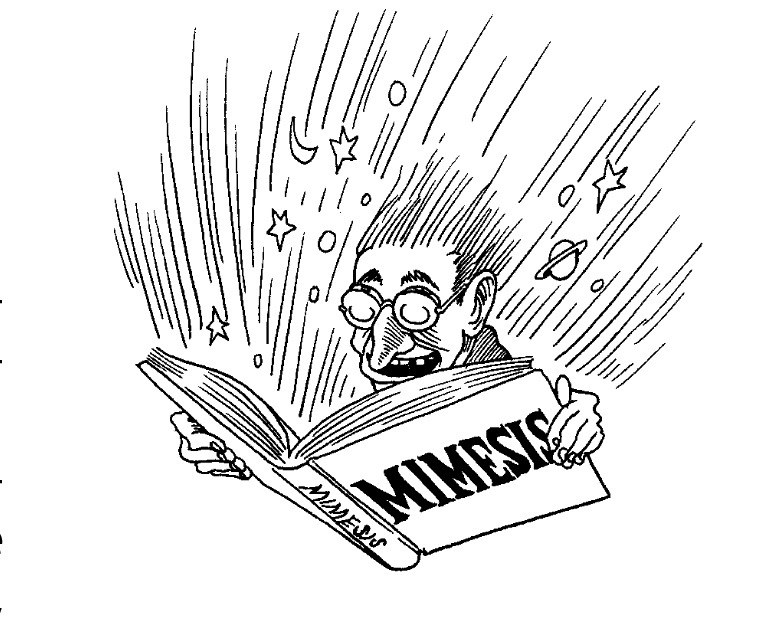Mimesis: The Representation of Reality in Western Literature: a relatively long title for a very long book. A pretty long, pretty boring, typically colonified title redolent of the very boring-est academic writing (boring at least for those readers who don’t have a professional interest in, for example, Insuring the Industrial Revolution: Fire Insurance in Great Britain, 1700–1850, or even, somewhat more excitingly, The Buried Book: The Loss and Rediscovery of the Great Epic of Gilgamesh). There are those of us who claim not to be terrified by such titles, fearless graduate students that we are—since our careers usually depend on producing them—but the fact remains that most readers and writers secretly despise them. They seem to signify not only overspecialization but some kind of hideous buildup, an intricate, inescapable clotting in the way we think and communicate to others what we’re thinking about.
So I was terrified by Mimesis, its title and its heft, fearless Stanford graduate student that I was—and the fact of the matter is that the thing stuns me still. It is the very longest, most dignified, patient, and heart-rending work of intellect and soul I have ever encountered. Hyperbole may be the preserve of the young writer, a condition of semi-adolescent spirit not unlike that of a high-school quarterback pointing up at the Big Man in sheer giddy idiocy post last-minute game-winning touchdown, when the floodlights in the podunk stadium still look like burning stars and the Astroturf still feels like the surface of an enormous planet whose inhabitants have been allowed, oh my god, an unfathomability of valor, of excellence for which one’s heart could not ever be prepared—but in this ephebe’s opinion Erich Auerbach earns his superlatives. His book is not a planet, Astroturfed or otherwise. It is a universe.
The range, the depth of Auerbach’s argument is staggering in and of itself. In just over five hundred pages he attempts a coherent account of the stylistic mechanisms operating behind the written depiction of human life from Homer to Virginia Woolf. Along the way he hits the Old Testament (Genesis), Petronius, Tacitus, Ammianus, Ovid, the New Testament (Jerome, Job), Augustine, the Chanson de Roland, a handful of Provençal stories about Adam and Eve, Dante, Boccaccio, Rabelais, Montaigne, Cervantes, Shakespeare, La Bruyère, Racine, St. Simon, the Goncourts, Schiller, Goethe, Stendhal, Balzac, Zola, Proust—to name only those to whom he dedicates at least a half chapter. Plus he reads them in their original language (Greek, Latin, Provençal, Old French, Spanish, English, German, etc.), and he keeps at least one eye on each writer’s cultural and historical context.
The goal...
You have reached your article limit
Sign up for a digital subscription and continue reading all new issues, plus our entire archives, for just $1.50/month.
Already a subscriber? Sign in





